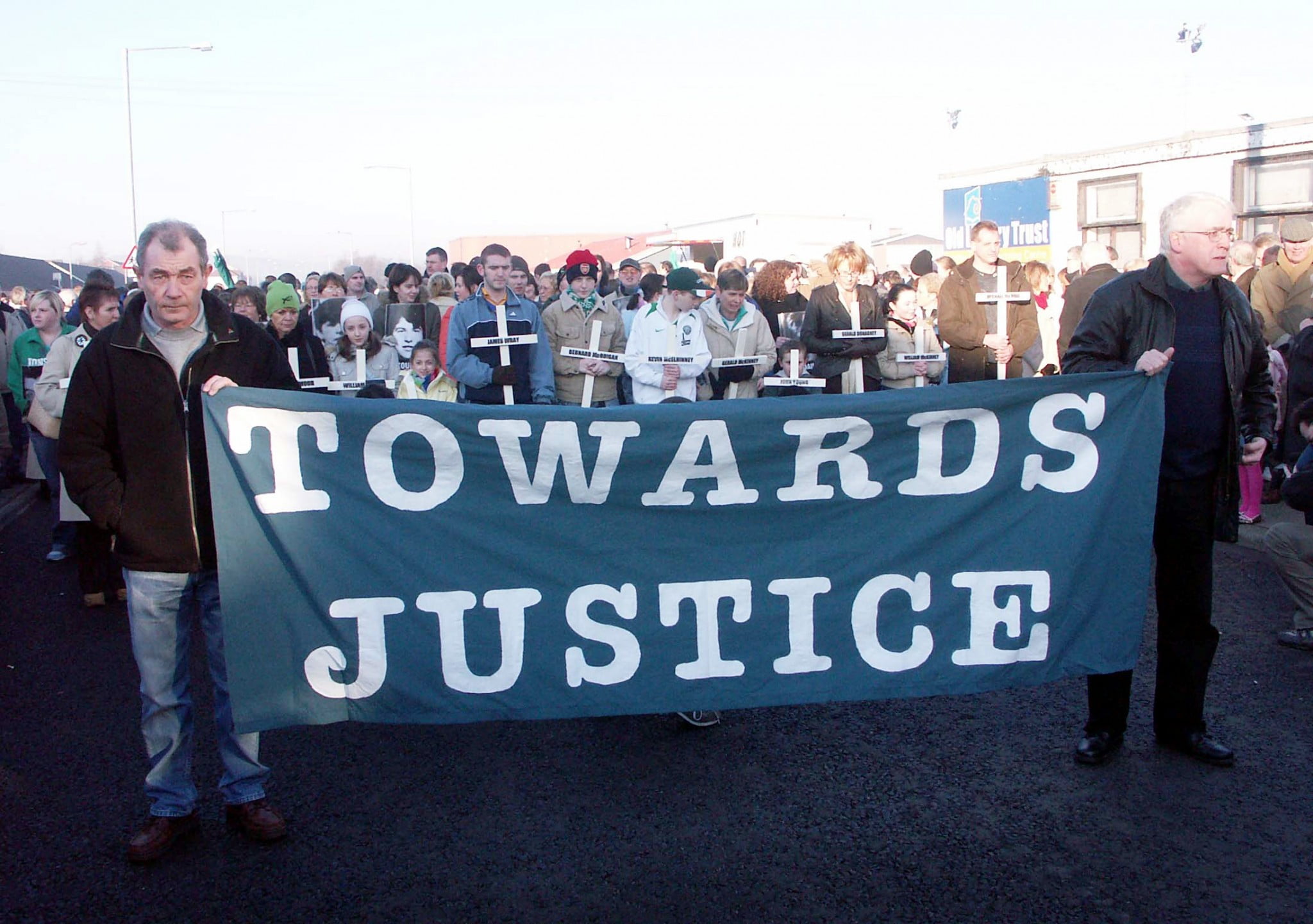
A decision on whether soldiers will be prosecuted for perjury over evidence to the Bloody Sunday Inquiry is expected within weeks.
Thirteen people were shot dead when members of the Parachute Regiment opened fire on civilians in Derry in January 1972.
After a lengthy campaign by bereaved families and survivors, a public inquiry was held, lasting 12 years and hearing evidence from eyewitnesses, experts and former soldiers.
The Bloody Sunday Inquiry chaired by Lord Saville was established in 1998 by Prime Minister Tony Blair.
It opened in 2000 at Derry’s Guildhall.
The inquiry relocated to London in 2002 to hear evidence from former soldiers, who said they feared being attacked by dissidents if they travelled to Northern Ireland to be cross-examined.
They were granted immunity from prosecution if they told the truth.
Lord Saville delivered his findings in June 2010, with Prime Minister David Cameron later apologising, saying the killings were “unjustified and unjustifiable”.
Eighteen former paratroopers were later reported to the Public Prosecution Service.
Last December it was announced one, Soldier F, will stand trial for the murders William McKinney and James Wray, and for five attempted murders.
The PPS also received police files on those alleged to have given false or deliberately misleading evidence.
People who gave evidence to the inquiry did so on the understanding they would have legal immunity.
This came in the form of the Attorney General’s assurance against future prosecution for self-incrimination, should they wish to tell the truth about the murders and attempted murders, perjury and perverting the course of justice that they may have committed in their personal accounts in 1972.
This amnesty also applied to IRA personnel who gave evidence to the inquiry, including Martin McGuinness, who said he was second in command of the IRA in Derry on Bloody Sunday.
All the witnesses were assured they would never stand trial as long as they told the truth.
However, it was alleged some did not, and Lord Saville severely criticised them in his conclusion presented to Parliament.
The victims’ families were contacted this week to ask if they would like to receive the prosecutorial decisions directly or through their legal representatives.
The families are represented by Madden & Finucane solicitors.
Solicitor Ciaran Shiels said: “We will now await the PPS decisions as to whether or not prosecutions will be instituted against the military witnesses who lied under oath to the Bloody Sunday Tribunal from 2001-2004, but also to Lord Widgery in the spring of 1972.”
It comes as the Independent Commission for Reconciliation and Information Recovery (ICRIR), set up under the controversial Legacy Act, prepares to start taking its first Troubles cases from May 1.
In February the High Court ruled the conditional immunity the body could offer from prosecutions for Troubles-era crimes was in breach of the European Convention on Human Rights.
However, Mr Justice Colton said he was also satisfied the ICRIR “could carry out human rights-compliant investigations”.
It is unclear what impact this will have on any PPS decisions to prosecute in legacy cases, given the May 1 cut-off date will be the end of all criminal prosecutions.
You must be logged in to post a comment.